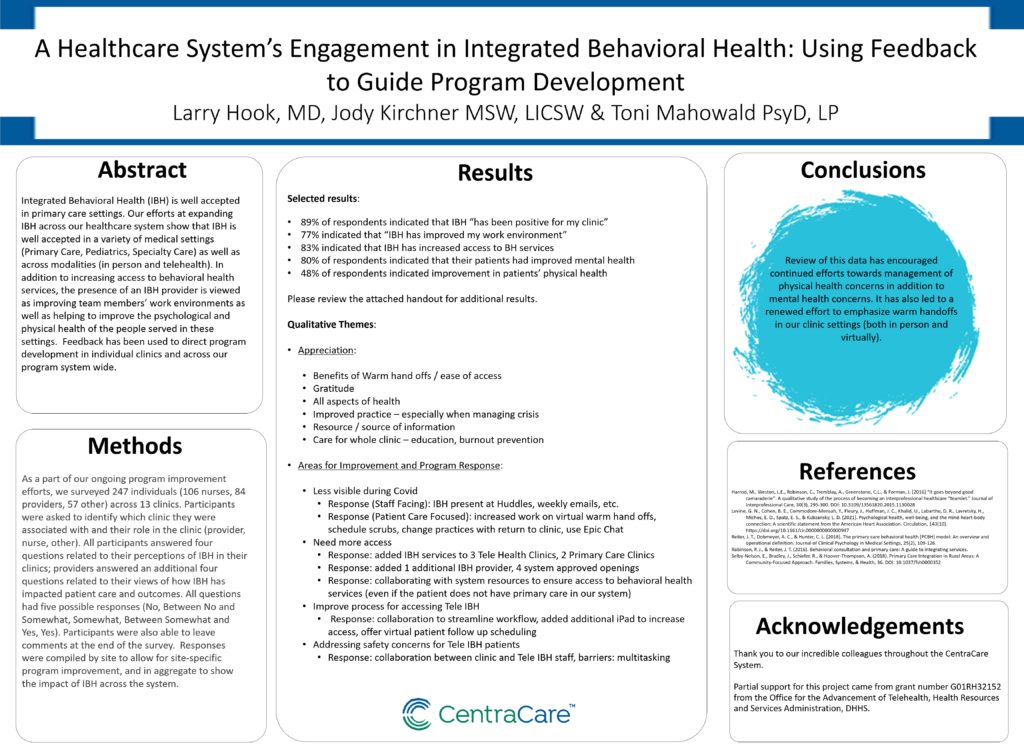Integrated Behavioral Health (IBH) is well accepted in primary care settings. Our efforts at expanding IBH across our healthcare system shows that IBH is well accepted in a variety of medical settings (Primary Care, Pediatrics, Specialty Care) as well as across modalities (In Person and Telehealth). As a part of our ongoing program improvement efforts, we surveyed 247 individuals (106 nurses, 84 providers, 57 other) across 13 clinics. Participants were asked to identify which clinic they were associated with and their role in the clinic (provider, nurse, other). All participants answered four questions related to their perceptions of IBH in their clinics; providers answered an additional four questions related to their views of how IBH has impacted patient care and outcomes. All questions had five possible responses (No, Between No and Somewhat, Somewhat, Between Somewhat and Yes, Yes). Participants were also able to leave comments at the end of the survey. Selected results include: 89% of respondents indicated that IBH “has been positive for my clinic”. 77% indicated that “IBH has improved my work environment” and 83% indicated that IBH has increased access to BH services. 80% of respondents indicated that their patients had improved mental health due to IBH involvement in care. There was little variation clinic to clinic regarding improved mental health, but there was more variation when looking at improvements in patients’ physical health; overall, 48% of respondents indicated improvement in patients’ physical health as a result of IBH involvement in care. Review of this data has encouraged continued efforts towards management of physical health concerns in addition to mental health concerns. It has also led to a renewed effort to emphasize warm handoffs in our clinic settings (both In Person and Virtually).
Spring Virtual Conference April 17-18th | In-Person Annual Conference in San Antonio, TX Oct 24-26th


Well structured data collection with encouraging results which can inform program development at other facilities.